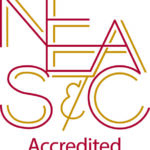Last Updated 10/12/23
Essential Eligibility Criteria for Chewonki Participants
Providing safe, equitable, and inclusive education programs is our purpose and mission. While we do not specialize in programming for people with disabilities, we welcome a diverse community of participants and we will seek safe, reasonable accommodations whenever possible.
Participating in a program at Chewonki requires a partnership of trust between our staff, participants, and their families. We ask that this relationship be based on an honest assessment of personal ability and a clear acknowledgment of the inherent risks in outdoor programming.
In most cases, participants will be offered training, practice, assistance, and support before being asked to undertake any of the activities listed below. If an individual is unable to meet the essential eligibility criteria for a given activity, and we are unable to create a reasonable accommodation plan in partnership with the participant and their family, we reserve the right to modify the curriculum for that individual. Please contact the appropriate program director if you have specific questions about essential eligibility requirements.
Essential Eligibility Criteria for All Participants:
- Able to understand verbal and visual instructions individually and in a group setting and follow those instructions (supervised or unsupervised)
- Able to acknowledge and understand hazards and safety concerns when explained and adhere to Chewonki safety policies and protocols even when educators are not present
- Able to communicate one’s needs to educators and others including (but not limited to) personal distress, injury, sickness, and/or the inability to perform relevant necessary skills
- Able to travel inside a vehicle safely for extended periods of time when programs include transportation
- Able to follow guidelines in order to maintain the health and safety of humans, animals, and the natural world
- Able to maintain self-care including having appropriate personal clothing for the trip, managing personal and group gear, staying hydrated and nourished, performing proper personal hygiene, and managing known medical conditions
- Able to meet any vaccination requirements for the program as defined by the Maine CDC and Maine Department of Education.
Jump to:
Program-specific Requirements
Maine Coast Semester Students
- Able to participate in a group living experience, sharing space with up to seven cabin mates, without continuous adult supervision
- Able to meet the activity requirements for their particular curriculum and backcountry trips which may include Backcountry Camping, Backpacking, Canoeing, Challenge Course, Cross Country Skiing, Kitchen Activities, Sea Kayaking, Snowshoeing, and Woodshop & Work Program.
Camp Chewonki Overnight Campers
- Able to participate in a group living experience, sharing space with up to twelve cabin mates
- Able to follow instructions from their Cabin Leader
- Able to meet the activity requirements appropriate for their particular age and curriculum which may include Backcountry Camping, Backpacking, Canoeing, Challenge Course, Sea Kayaking, and Woodshop & Work Program.
Camp Chewonki Leadership Expeditions Participants
- Able to participate in a group living experience, sharing space with up to three tent mates
- Able to meet the activity requirements for their particular backcountry trip which may include Backcountry Camping, Backpacking, Canoeing, Challenge Course, Kitchen Activities, Sea Kayaking.
Outdoor Classroom Participants
- Able to participate in a group living experience, sharing space with up to three tent mates
- Able to follow instructions from their Outdoor Educator and Chaperone
- Able to meet the activity requirements for their particular program which may include Backcountry Camping, Backpacking, Canoeing, and Challenge Course.
Traveling Natural History Participants
- Able to meet the safety and behavioral guidelines as outlined by Chewonki educators
Activity-Specific Requirements
Backcountry Camping
- Able to adapt to the physical and emotional demands of the program and live in primitive conditions for extended periods of time while traveling in regions where access to advanced medical care is delayed and, in many cases, may be days away
- Able to take precautions that both prepare oneself and help with understanding when it comes to changeable weather conditions, challenging terrain, and encounters with potentially dangerous wildlife
- Able to manage extended time/days of sleeping outside, overnight, in extremely dark environments
Backpacking
- Able to carry a backpack that may weigh up to 35% of the participant’s body weight over uneven terrain
- Able to travel each day over steep and uneven terrain with a loaded backpack for up to six to eight hours, covering mileage that may be up to 10 miles. At times, there may be elevation gains of over 1500 feet in a day and participants may be crossing rivers and streams that do not have a bridge.
Canoeing
- Able to wear a personal flotation device (PFD) correctly
- Able to maintain a face-up position in flat and moving water while wearing a PFD and make progress through the water to the shore or rescue craft
- Able to follow instructions immediately upon unexpected immersion in cold, flat or moving water. The instructions may be communicated on the spot or have been taught in advance
Able to sit or kneel and maintain stability for prolonged periods of time while paddling in a canoe - Able to work cooperatively with a partner in a canoe
- Able to control a paddle and pull it through the water to propel the canoe forward, backward or side-to-side while performing paddle strokes, including, forward, cross-forward/draw, low and high brace, sweep, C and a corrective steering stroke
- Able to help carry an 80 lb. canoe with assistance or by oneself
- Able to travel over uneven terrain with a pack weighing up to 35% of your body weight
Challenge Course
- Able to wear a climbing and/or chest harness correctly
- Able to wear a climbing helmet correctly
- Able to maintain an upright position when attached to climbing gear, while wearing a harness and helmet and at height
- Able to follow instructions immediately in the instance of an emergency at height
Cross Country Skiing
- Able to safely and adequately wear appropriate cross country ski boots
- Able to shift body weight between two skis and move across the terrain
- Able to transport a backpack that may weigh up to 35% of the participant’s body weight over uneven terrain (this will include personal clothing, group food, and equipment)
- Able to travel each day over steep and uneven terrain for up to six to eight hours, covering mileage that may be up to 14 miles. At times, there may be elevation gains of over 1500 feet in a day.
Kitchen Activities
- Able to focus, work independently for long periods of time on a task with support and supervision
- Able to pause what one is doing (after an indication from cooks), follow directions, and move into the next activity
Sea Kayaking
- Able to wear a personal flotation device (PFD) correctly
- Able to maintain a face-up position in flat or moving water while wearing a PFD and make progress through the water to the shore or rescue craft
- Able to follow instructions immediately upon unexpected immersion in cold, flat or moving water. The instructions may be communicated on the spot or have been taught in advance
- Able to enter a kayak cockpit and execute a wet exit
- Able to sit for prolonged periods of time in a kayak and maintain stability
- Able to perform paddle strokes to steer and move the kayak forward and backward and to execute rescues
- Able to re-enter a kayak from the water with minimal assistance from others
- Able to carry a 70 lb. kayak by oneself or with another person
Snowshoeing
- Able to safely and adequately wear appropriate snowshoes
- Able to transport a backpack that may weigh up to 35% of the participant’s body weight over uneven terrain (this will include personal clothing, group food, and equipment)
- Able to travel each day over steep and uneven terrain for up to six to eight hours, covering mileage that may be up to 14 miles. At times, there may be elevation gains of over 1500 feet in a day.
Woodshop & Work Program
- Able to wear appropriate personal protective equipment (PPE) for the task at hand (i.e. safety glasses and hearing protection)
- Able to work outdoors in most weather conditions



